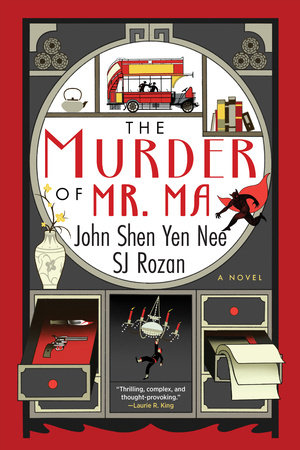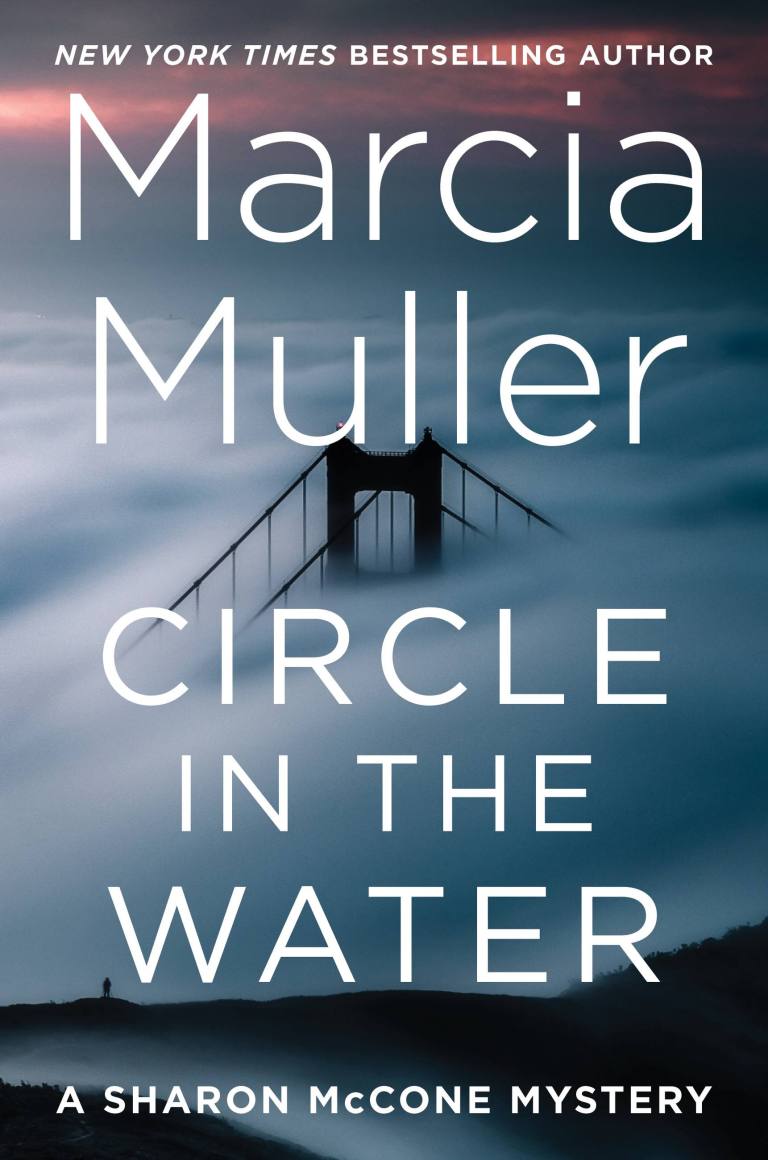I'm not 100% sure when I first met SJ Rozan, but think it was while attending a
Bouchercon, maybe San Diego in 1994 or '95. The night before the Shamus
banquet, I had been invited to join a group, including SJ and her editor, and
four or five other writers to go eat Chinese food. After we ate, everyone at
the table read their fortune cookies out loud. SJ's read something to effect
that she would soon be given a great honour.
The next night, at the banquet she
and her book won the Shamus Award for Best First novel. I had to smile,
because I had been on the committee reading for that award and knew we had
voted to give it to SJ, for her first book, CHINA TRADE. Later that evening
when she mentioned what the fortune cookie foretold, I said I'd had hardest
time in my life to keep a straight face, knowing that she would indeed be given
that award. Then in 1998, at Bouchercon in Philadelphia, when they announced
Jan Grape had won the Anthony for Best Short Story, SJ found me and gave me a
big hug before I even got to the stage to receive my award.
It has been 30+ years of
admiration, affection and friendship as I have watched her growth from a novice
into a top best-selling author. Now she's stepping off into a new and
thrilling adventure about the 1920s London along with co-author, John Shen Yen
Nee. Here's a tidbit about SJ's latest title, MURDER OF MR. MA.
— Jan Grape
The Murder of Mr. Ma
The Murder of Mr. Ma, the start of a new series co-written by me and John Shen Yen Nee, comes out April 2nd.
It's been suggested that it would make a good post if John and I interviewed each
other. However, getting John to sit down on a schedule is like trying to nail
Jello to the wall. John's strength is also his weakness: his mind is like an
explosion in a Roman candle factory, ideas whizzing off in all directions. Since we began working together it's been my job to organize, thin out, augment, and write those ideas into a book.
So instead of searching for my Jello hammer, I shall interview myself.
SJR: That's ridiculous.
SJR: Why? I talk to myself all the
time.
SJR: Good point. So if John's so
impossible to pin down, how did you manage to write this book?
SJR: The Murder of Mr. Ma, was based
on a idea John had been thinking about for awhile. During the pandemic he had
time to flesh it out. In fact he fleshed it out to a sixteen page single-spaced
outline. Then he went looking for a writer.
SJR: He set out writer traps -- cups of
coffee, reams of paper?
SJR: That might have worked, but
no. He called his friend Alex Segura, who recommended that he call Alex's
agent, Josh Getzler. Josh is also my agent. When he heard the idea for Mr. Ma
he thought I might be the right writer for it. He asked if I'd talk to John.
Remember, this was a few months into the pandemic. I was talking to the walls.
A stranger with a project? You bet I'd talk to him.
 SJR: And the rest was history?
SJR: And the rest was history?
SJR: Lots of history. The Murder of Mr. Ma, is set in London, 1924. It involves the Chinese Labour Corps in France
during World War One.
SJR: The what?
SJR: Exactly. The book's detecting
duo are Judge Dee, made famous by Robert Van Gulik, and Lao She, an actual
Chinese novelist. I was familiar with Judge Dee, and I'd heard of Lao She, but
I'd never read him. John started sending me books, and more books. Also, my
knowledge of London in the 1920's was vague -- transport, neighborhoods,
clothes. I needed yet more books for that. The learning curve, on my end, was steep.
SJR: But at least John's outline
was perfect.
SJR: John's original outline
contained not only the kitchen sink, but also all the appliances, cabinets, and
original marble counters. We had to make some, er, judicious cuts.
SJR: And then -- ?
SJR: And then, after all that
reading and cutting, I was ready to write. I sent John a sample chapter. This
was a fraught moment. If the voice of Lao She as it sounded in my head wasn't
the voice John hoped for, I was off the project. Not that John said that, but I
did, because any writer will tell you once a voice comes to you, it can't be
changed.
SJR: You actually hear voices in
your head?
SJR: I'm talking to you, aren't I?
SJR: Another good point. But John
must have liked it.
SJR: He loved it. We'd hit the same
wavelength. And thus the writing began.
SJR: But there was another big
roadblock, wasn't there?
SJR: There sure was. One of the
features of this book and this series is action. A lot of changes of setting,
and kung fu fighting. Neither John nor I are kung fu experts.
SJR: You needed a consultant.
SJR: And we found one! One of those
miracle friend-of-a-friend-of-a-friend stories, New York style. We were steered
to Master Paul Koh of Bo Law Kung Fu in Chinatown. He loved the project and
he's been everything we could hope for. His kung fu choreography and his sense
of humor are fabulous.
SJR: Okay, all this sounds great.
But you speak of this as a new series. I plaintively ask, What about Bill Smith
and Lydia Chin?
SJR: Bill and Lydia are fine. The Mayors of New York, narrated by Bill Smith, came out 4 December. A new
Lydia-Chin-narrated book is underway.
SJR: You can do two things at once?
SJR: Haven't we just proved that?
SJR: Another --
SJR: Good point.
SJR: While we're talking about your
multitudinous personalities, you also teach. Talk about that.
SJR: I love to teach. I have
students in NYC who've been with me for years. I also travel to do some
workshops, and for years I've done one in Assisi, Italy, as part of Art
Workshop International. Now I want to get serious for a minute.
SJR: Oh no.
SJR: Here's the thing. This year's
Assisi workshop is June 27 -- July 12. Every year I have people who say,
"You know, maybe next year I'll come." But do you remember 2019? All
the things we were going to do "next year?" There was no next year.
Everything was canceled. Pretty much true of the year after that, too. I want
to say: If there's something you want to do, and you have the time and the
money, do it now. It doesn't have to be Assisi -- though I hope it is so we can
work on your book. But whatever it is, do it. Do it now!
SJR: You make yet another good
point.
SJR: You know the great thing about interviewing myself? I'm always right.
































